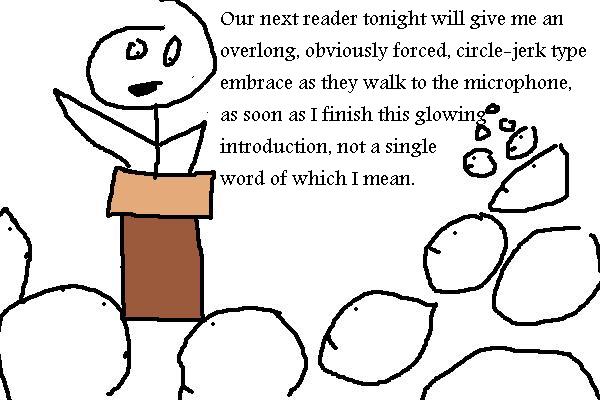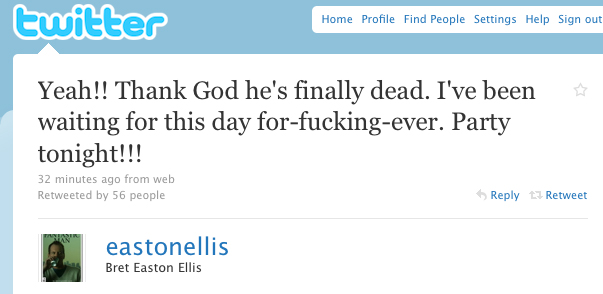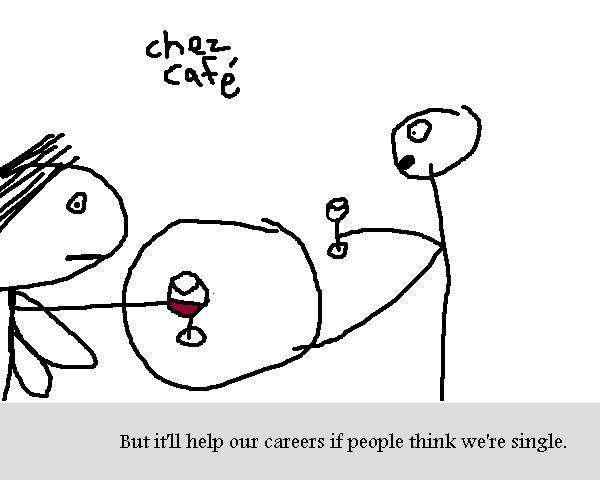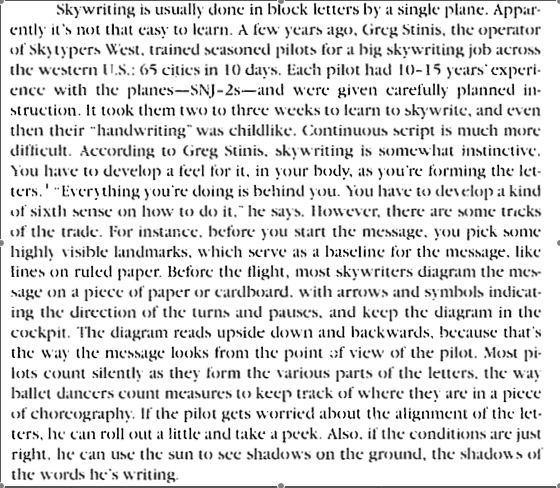A Six Minute Trip, But It Feels Like Eternity: Sundance Film Festival, a review.
 11 degrees and snowing. The weather and its children–snow, slush, wet shoes, stung faces–frames Sundance. As much as I’d like to say I acclimated, I didn’t. But the weather does amplify a sense of frenzy & camaraderie already present for the sake of the namesake: movies. People go to see movies, buy movies, sell movies–share movies and share themselves. And, yes: if you don’t have passes, know that you should wake up at 6am or earlier every morning to stand in line for hours at the box office, just to find out that you can only get tickets to 2 (max) of the 5-8 movies you wanted to see. There was a guy, first in line, who camped out at the box office for the night only to be beaten to the punch for tickets by someone who paid faster (cash). Devotion.
11 degrees and snowing. The weather and its children–snow, slush, wet shoes, stung faces–frames Sundance. As much as I’d like to say I acclimated, I didn’t. But the weather does amplify a sense of frenzy & camaraderie already present for the sake of the namesake: movies. People go to see movies, buy movies, sell movies–share movies and share themselves. And, yes: if you don’t have passes, know that you should wake up at 6am or earlier every morning to stand in line for hours at the box office, just to find out that you can only get tickets to 2 (max) of the 5-8 movies you wanted to see. There was a guy, first in line, who camped out at the box office for the night only to be beaten to the punch for tickets by someone who paid faster (cash). Devotion.
So there is a madness to the festival. It is worth it. I met filmmakers–actors, writers, directors, producers–I highly respect, and had leisurely conversations with them. All were warm, all were happy to be sharing. I saw six films in four days and a night, three of them great. It was thrilling.
The title above comes from a line in Enter The Void–one of the characters is describing a DMT trip. I stayed away from the DMT, but the festival, all gathered & gleaned, is a very specific and inspiring drug and gauntlet.
Okay. Here’s what I thought of the films:
REMINDER: 9 PM Tonight! (Eastern) Live Giant #1 Heather Christle
Don’t forget to come back right here tonight for the first monthly Live Giants reading with the radical Heather Christle, who will grace us with something else. To watch the reading, tonight you’ll find a post at the top of the site around five minutes till 9:00 PM (Eastern, so 6:00 PM on the west coast and you can do the other math). You’ll be able to watch it on the site, or follow a link so you can chat and ask questions or otherwise type at Heather in chatforum style. We’ll kick off at 9 Eastern sharp! Her cat Hastings will be there. Hope you will too.
Common tactics employed by HTMLGIANT commenters, as abridged via Ketel One ad responses
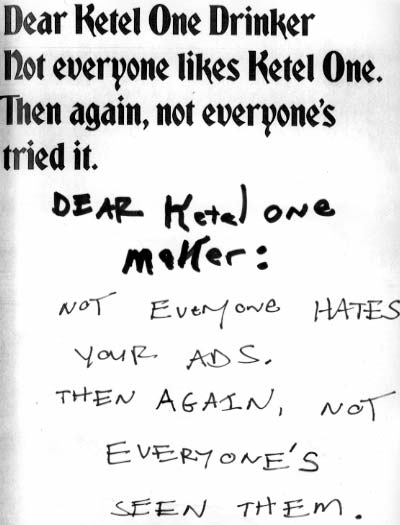
1. Passive Aggressive
If you were teaching a class on American experimental fiction, what texts would you choose, and why?
My apologies to Jereme, who recently commented something along the lines of “htmlgiant is like a teacher’s lounge,” but since I spent the weekend putting together course proposals for next year, I thought I’d share one of the possible reading lists I devised for my “Introduction to American Experimental Fiction” course. You’ll notice that all of the selections are on the shorter side <300 pages. This is crucial, so that I can cover a bunch of different texts. Nothing is set in stone yet, so I would love to hear what you would add or subtract from this list, and why:
Ishmael Reed – Mumbo Jumbo
William S. Burroughs – The Soft Machine
Kathy Acker – Blood and Guts in High School
Carole Maso – Aureole
Jean Toomer – Cane
David Markson – This Is Not A Novel
Gertrude Stein – Tender Buttons
Ben Marcus – The Age of Wire and String
*As a bonus, my wife found this cool database of syllabi for American Lit courses from professors at various universities (including a Poetics syllabus from Susan Howe for a course on “Sexuality and Space in 17th – 19th Century American Literature.”
“Have your own fun.”
 Finally having got a hold of the beautiful latest issue of Fence, I was struck–[before being struck by the words of the pieces, as usual, and by their new colored layout on the page in this issue in a combo of blue/black/gray that I wish more publications would take on]–in reading Rebecca Wolff’s editor’s note. The note concerns itself mainly with an email that she received about an announcement for Brandon Downing’s brand new, and by and large tough to nail down, Lake Antiquity.
Finally having got a hold of the beautiful latest issue of Fence, I was struck–[before being struck by the words of the pieces, as usual, and by their new colored layout on the page in this issue in a combo of blue/black/gray that I wish more publications would take on]–in reading Rebecca Wolff’s editor’s note. The note concerns itself mainly with an email that she received about an announcement for Brandon Downing’s brand new, and by and large tough to nail down, Lake Antiquity.
The emailer was bitching at Ms. Wolff for calling the book ‘indescribable’ and then simultaneously going on to try to describe it. The emailer apparently thought the book wasn’t as indescribable as she thought it was, and gave his take on how she should have described it. Bitching at her for being in awe of something, and not knowing exactly how to say why. She responds and then takes the consideration of the person’s email as a chance to open up the consideration of her editorial stance, which struck me as so right and crucial that I am going to copy the heart of it right here:
As a publisher, I often find myself in the position of ushering texts into the world that are, frankly, over my head in terms of their erudition or the richness of the literary-historical medium in which they grew–most of the poets I publish have read more than I have, and my appreciation of their work is made up of some combination of savvy (“this work is smart, and, in its position in the literary landscape, is something I feel comfortable being connected to”), curiosity (“I will learn something through the process of putting this book out in the world”), and whatever one calls the kind of literary/aesthetic appreciation that happens DESPITE or IN SPITE OF a kind of glancing or even glib awareness of the aforementioned richesses.
Thank god. A publisher of renown, with a backlog of amazing publications, who understands and can be plain about the idea that an editor, publisher, whoever, need not understand the full breadth or even the full context of the body of work they help bring into the light–beyond simply knowing that it is something of power, worth spreading. If there is anything that plagues the magazine and book publishing industry, it is too wide a margin of people denying that which they do not understand, or can encapsulate, and thereby disallowing themselves to be altered or even expanded by the work, in working harder at it, in letting it open up around them. Is this not what we read for? Is this not what we write for? Are books just another mode of entertainment, continuity, or are they meant to do something more?
This is why many magazines are dying. In something as often ephemeral as an issue of a magazine, why shouldn’t more chances be taken? In something as historically struck as publishing a book, why shouldn’t it be something that lives beyond its grasp? So many magazines and publishers fail financially because first they fail to enthrall, because their contents are bound in breadth enough that they are forced to compete for attention by things like movies, and often wheel around the elements that make text capable of approaching, creating space untouchable by another medium.
If only more editors would be more frank and open and willing to open the gates some, to smudge lines and make things that we can take beyond mere emotional responses and momentary pleasures, and instead create a body that more often interacts on the level of the unnamable, the waking, the eat. The day there are no objects left that we do not understand is the day we begin only ever getting smaller, dumber. Bodies in a stall.
>>>>>> Intuition over containment.
>>>>>>> Prowess over cake.
>>>>>>>>>>> Resonance over immediacy.
>>>>>>>>> ‘What the fuck’ over ‘Oh, neat.’
Pick up the new issue to read the thing in full, it’s worth the price alone, not to mention a ton of other magick words.
Bravo Rebecca. I want to have your kind of fun, too.
Collectors Of
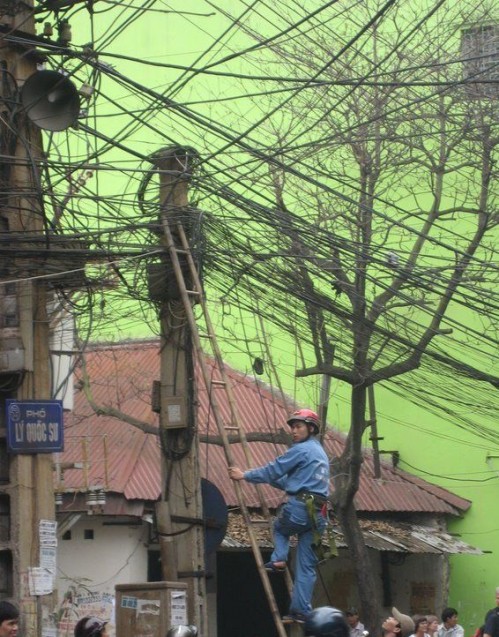 Writer: What do you think about when placing stories or flashes or essays or poems or whatnot in a collection?
Writer: What do you think about when placing stories or flashes or essays or poems or whatnot in a collection?
Order? Disorder? Intent?
Reader: How do you ingest a collection? Start to finish, left to right, top to bottom—blar!
Reader: A while back I was reading Drift and Swerve by Samuel Ligon and found myself intrigued by Nikki, a reappearing character. So I read all the Nikki stories first, then read the others.
Writer: Is a collection an album? Greatest hits, do you hear a single, does anyone remember the term concept?
Reader: This Richard Russo collection, it had a spectacular story, one, and the others…well.
Seems like you can crag in more tone shifts, more gnashes, poet. Can the prose writer do the same, or do these texts need to have some similarity?
You say hybrid, I say what?
Let’s bale these tendrillic texts, bathtub them, and call everything a novel! So clean!
OK.
Was just wondering. Etc.
“You have to develop a feel for it, in your body, as you’re feeling the letters. ‘Everything you’re doing is behind you.'”
 Dreaming of writing a breezy pocketbook bestseller called HOW TO HAVE FUN WITH CONTEMPORARY NONSENSE, I had my dream thankfully interrupted by the discovery of the mighty Ron Padgett’s Creative Reading (1997), which is sort of a better, richer, funnier, and broader version of my idea, involving a lot less instances of the phrase “Derridian play as model for invisible friendship” (yeah, I know, sorry in advance, hypothetical sorry, snow sorry, slur saw reed) and a lot more about how strange and terrific all reading can be. And how meeting up with that fact makes you a better reader and enables you to have fun with all kinds of reading, even the nonsense. Best of all, Padgett’s book is available for free by clicking the link above. It includes lots of great, clear and easy-gaited strategies for messing around with the stuff you read, which makes it an ideal text for teaching and/or quoting in the presence of family members who have no idea what the fuck you’re talking about, ever. It’s full of poems, tidbits, cut-ups, cool stuff. It’s basically about letting your mind be playful and less scared. Less scared of nonsense and of the nonsense at the root of language’s conceit, the ticklish arbitrariness of all abstract communication. Here is a blurb:
Dreaming of writing a breezy pocketbook bestseller called HOW TO HAVE FUN WITH CONTEMPORARY NONSENSE, I had my dream thankfully interrupted by the discovery of the mighty Ron Padgett’s Creative Reading (1997), which is sort of a better, richer, funnier, and broader version of my idea, involving a lot less instances of the phrase “Derridian play as model for invisible friendship” (yeah, I know, sorry in advance, hypothetical sorry, snow sorry, slur saw reed) and a lot more about how strange and terrific all reading can be. And how meeting up with that fact makes you a better reader and enables you to have fun with all kinds of reading, even the nonsense. Best of all, Padgett’s book is available for free by clicking the link above. It includes lots of great, clear and easy-gaited strategies for messing around with the stuff you read, which makes it an ideal text for teaching and/or quoting in the presence of family members who have no idea what the fuck you’re talking about, ever. It’s full of poems, tidbits, cut-ups, cool stuff. It’s basically about letting your mind be playful and less scared. Less scared of nonsense and of the nonsense at the root of language’s conceit, the ticklish arbitrariness of all abstract communication. Here is a blurb:
After a brief discussion of common reading errors that can be used creatively, the central chapter of the book, “Creative Reading Techniques,” suggests exercises that make reading an adventure, highly interactive, and imaginative, using both classic and modern literature in ways that blend reading and writing. Along the way, among other things, the book talks about the influence of typography, movies, and television on reading, the joys of misunderstanding, the music of Spike Jones, skywriting, Dada poetry, reading in dreams, the way words sound in the reader’s head, and the setting in which text is read.
There’s also an awesome appendix about skywriting. Tell me if this doesn’t remind you of anything:

